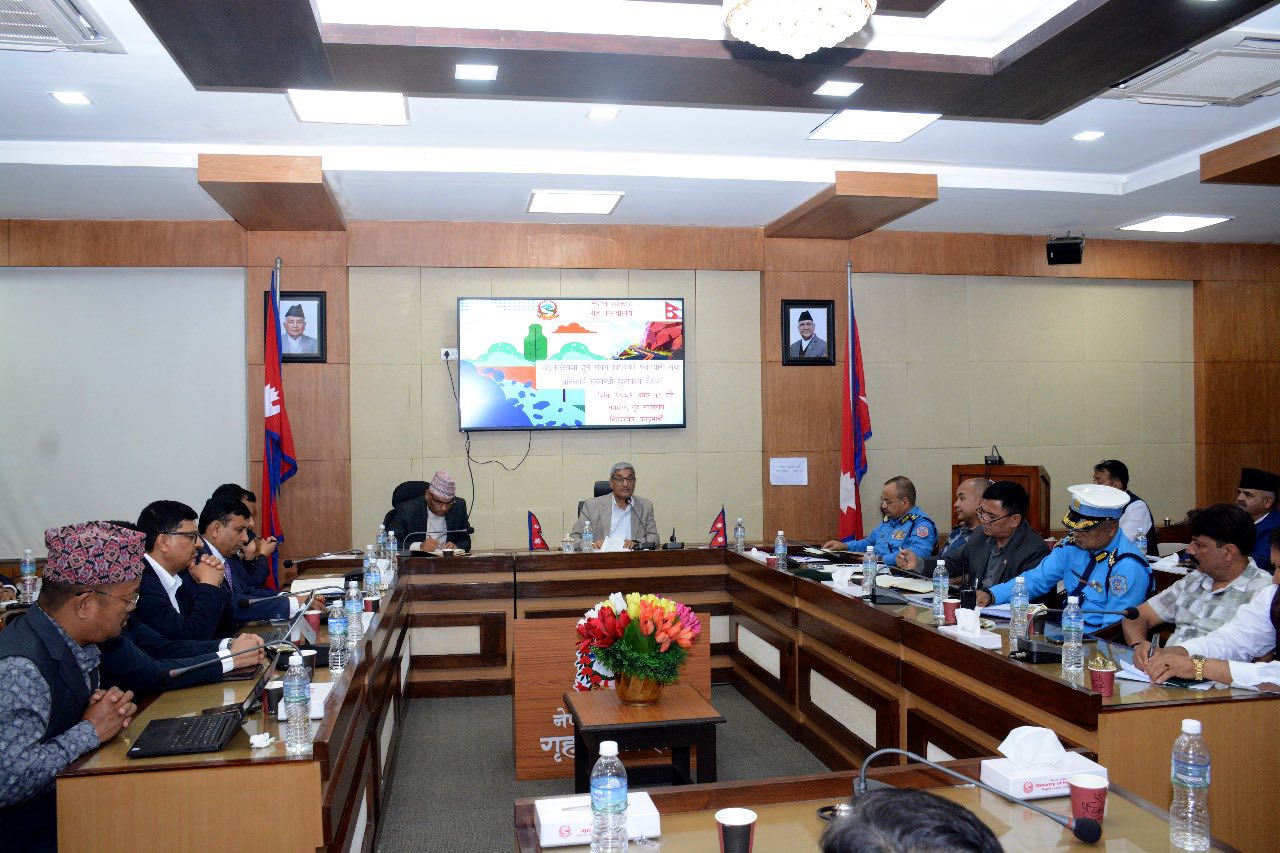After the Supreme Court issued a writ of mandamus to investigate the 2007 Gaur massacre, Home Minister Ramesh Lekhak and the chiefs of all three security agencies are holding a discussion on the matter.
According to a Home Ministry source, a meeting is underway at the ministry on Tuesday afternoon.
The meeting includes Home Secretary Gokarna Mani Duwadi, Inspector General of Nepal Police Deepak Thapa, Inspector General of Armed Police Force Raju Aryal, and Chief of the National Investigation Department Hutaraj Thapa.
“Following the Supreme Court’s verdict on the Gaur incident, the home minister called a meeting for internal discussion,” the Home Ministry source said, adding, “The discussion is currently ongoing.”
Senior officials of the ministry are also participating in the meeting.
On Monday, a bench comprising Justices Til Prasad Shrestha and Nityananda Pandeya issued the mandamus to proceed with the investigation of the massacre.
Tribhuvan Sah and others had filed a writ petition naming the District Police Office, Rautahat, and the District Government Attorney’s Office, Rautahat, as respondents.
Sah had filed the petition on June 4, 2023, seeking a mandamus for investigation into the massacre. The bench of Justices Shrestha and Pandeya issued the mandamus following a hearing on the petition on Monday.
On March 21, 2007, the then-CPN (Maoist) and the then-Madhesi People’s Rights Forum (MPRF) had organized events at the same venue, a rice mill in Gaur, Rautahat.
Before the events could begin, a violent clash broke out between the two groups, resulting in the deaths of 27 Maoist workers. Various reports state that these workers were chased and killed by MPRF supporters. According to a report by the National Human Rights Commission (NHRC), 115 people were injured in the incident.
After conducting an on-site study, the NHRC identified four causes of the incident.
First, the vengeful behavior between the then-Maoists and the MPRF, particularly stemming from an incident on January 31, 2007, in Gaur, where Maoists attacked and beat supporters and leaders of the MPRF, fostering a vengeful sentiment.
Second, while the MPRF had been publicizing its event scheduled for March 21, 2007, at the Gaur rice mill for 10-12 days, the Madhesi Liberation Front, a sister organization of the then-CPN (Maoist), selected the same venue just two days before the event, creating a situation for confrontation.
Third, the local Chamber of Commerce attempted to mediate by organizing a meeting to avoid holding events at the same time and place, but the Maoists did not attend, and both sides ignored verbal requests from the local administration.
Fourth, despite the District Security Committee’s decision on March 20, 2007, to request additional security personnel, the authorities concerned neglected to deploy them.
Complaints were filed against 130 individuals, including Upendra Yadav, chairman of the Janata Samajwadi Party Nepal, in connection with the incident. Three years ago, the NHRC had decided to initiate action on these complaints.
The government had formed a five-member commission to investigate the incident. The commission submitted its report on April 11, 2007.
The NHRC has said that the incident occurred due to a lack of seriousness on the part of the leadership of both the Maoist and Forum parties.
“It could not be assumed that the then-chairman of the Madhesi People’s Rights Forum, Upendra Yadav, and Forum activists from Rautahat district, as well as the then-general secretary of the Madhesi Liberation Front, a sister organization of the then-CPN (Maoist), Prabhu Sah, and former people’s government chief Bindeshwar Yadav did not anticipate that two different parties with hostile behaviors holding events at the same place and time could lead to violence and loss of life and property. Therefore, it was found that no initiatives were taken by the leadership of both parties to prevent the incident,” the commission said.

